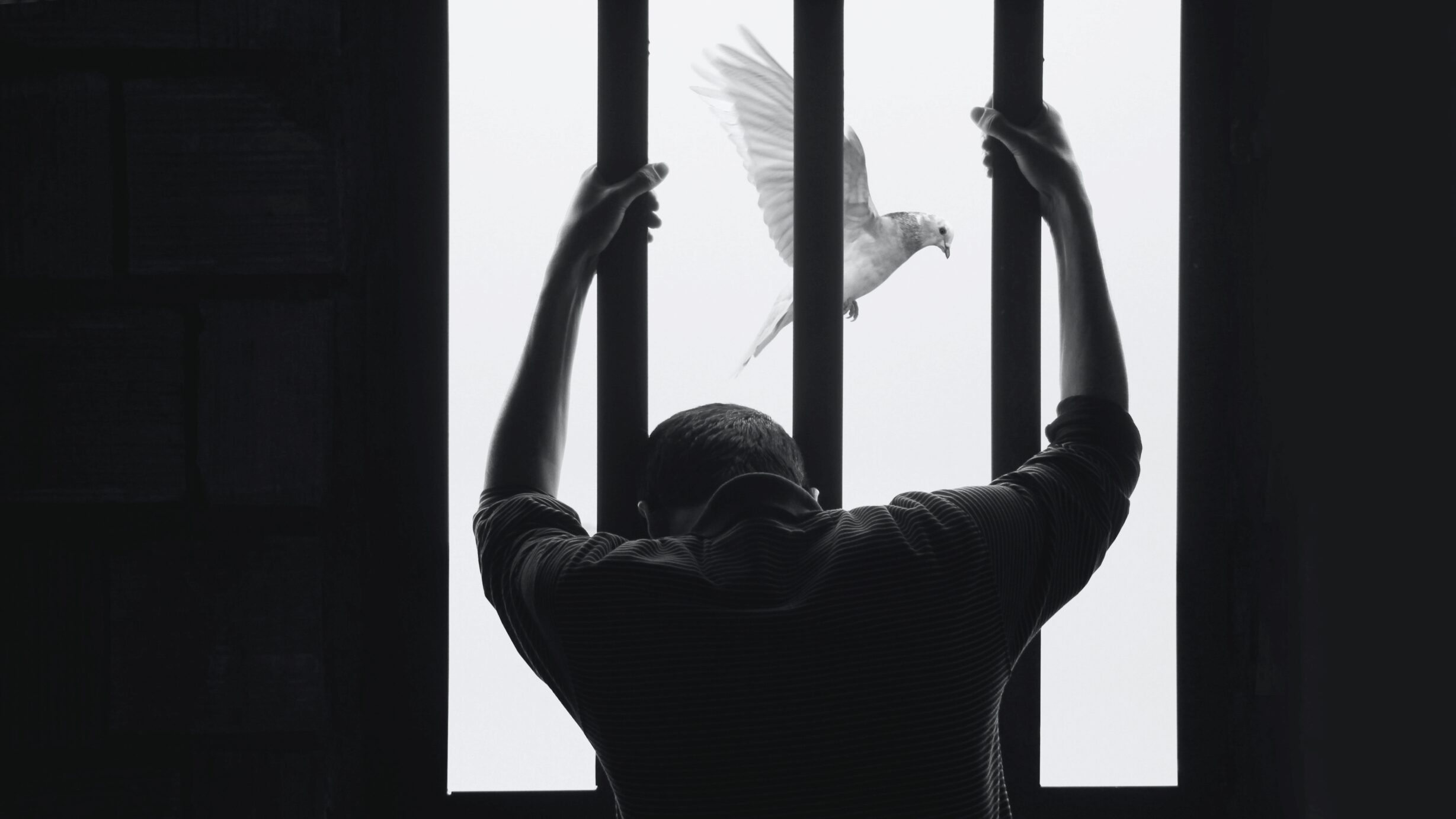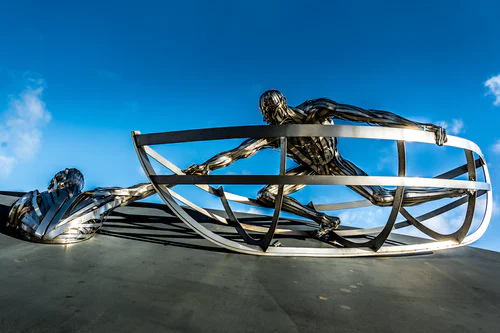Trusting & Being Trustworthy

Jesus’ disciples, then and now, are characterized by both trusting what Jesus promised and being trustworthy themselves. I’ve chosen to relate these qualities through some challenging life experiences our family went through and I wrote about more than a decade ago. It is reprinted here with some minor updating.
I walked out of the courtroom in shock. My 30-year-old son had just been sentenced to six years in a California state prison for a crime we were convinced he did not commit. As friends expressed their heartfelt sympathy, the sentencing judge walked through the crowd outside the courtroom. I had the strongest urge to approach him and express my outrage, but I was numb, paralyzed and unable to speak.
My wife, Karen, and I returned to our hotel room hardly saying a word. When we arrived, the pent up emotion of two years waiting for his case to come to trial, exploded in a torrent of tears and anguish that I had never experienced before. As we held each other and sobbed uncontrollably, I remember thinking, “We need to pray”.
Not that some miracle would overturn the verdict, but that God would help us to trust him in the darkness of that moment. I knew what the Bible taught. “God causes all things to work together for good for those who love God, who have been called according to his purpose.” (Romans 8:28)
As a pastor and Bible teacher I knew that passage well. I had preached it from the pulpit and used it in counseling sessions, but this was the litmus test. Did I really believe it? I knew that verse wasn’t teaching that “all things are good.” Injustice is not good, giving false testimony in court is not good, prison is not good, having six years of your life taken away is not good. But that’s not what the passage is teaching. It’s not that “all things are good” – they’re not. Rather, it is that God works all things together for good. He takes the injustice, the dishonesty, the prison experience, the seemingly wasted years and brings good out of it.
I’ve often used the recipe for Tollhouse cookies to illustrate the point. The recipe calls for various ingredients – flour, shortening, sugar, salt, raw eggs, chocolate chips. Apart from the chocolate chips, nothing else tastes good by itself. You wouldn’t sit down and eat a bowl of sugar or salt or flour or raw eggs and say, “that’s good.” But when you work the various ingredients together, something really good comes out of it. That’s what God promises! He can take all the broken pieces, the evil, the injustice and bring something good out of it. That is precisely what God did in our son’s life and in the life of our family.
In the early days of our son’s incarceration I remember reading of another pastor’s anguish. Gerry Sittser had been hit by a drunk driver on a California highway and instantaneously lost three generations of women in his life; his wife, his mother-in-law, and his little girl. He shared with brutal honesty his anger with God over the seeming randomness of the accident and his struggle to see how any good could possibly come from such tragedy. But he said something that helped me greatly in the aftermath of our own confusion. He said, “The closer you are in proximity to the event, the more you have to affirm in faith that God can bring good even out of evil. As more and more time elapses from the event, the easier it will become to see the good that God can bring.”
Nothing could erase the pain of his loss or change the real evil of the tragedy he experienced, but God did begin to bring some good out of it. He wrote a book about his experience, A Grace Disguised. It helped to put our own family’s tragedy in perspective and provide us with helpful guidance in how to navigate through our own dark night of the soul.
One of the first signs that God could bring some good out of this was my contact with the prison chaplain. While our son, Matt, had not been pursuing spiritual goals through his 20’s, the prison sentence was potentially a wake-up call. I hoped it might be a catalyst for spiritual openness. So I called the prison and asked to speak with the Protestant chaplain. I had a brief but promising talk with Chaplain Ray Davis, explaining my son’s background and why I thought he might be receptive to a personal contact. I called back a couple weeks later only to discover that Chaplain Ray was in the hospital. I prayed for him, I prayed for my son, and I waited. When I finally called back I was informed that Chaplain Ray had died. Back to square one! (I would later learn that Ray Davis had been the lead guitar player for the 70’s rock group, “Three Dog Night.” He had been imprisoned on a drug charge, converted to Christ in prison and later would return to prison to minister to inmates.)
The chaplain who followed Ray Davis was Jack Carmichael or “Chappy” as we came to know him. He had spent time as a paratrooper chaplain in the military and a second career as an administrator in the California University system and had spent time on a volunteer basis at California Correctional Center. After Ray Davis’ untimely death and at an age when most men were long retired, Jack Carmichael launched his third career.
My first contact with Chappy was on the phone, close to a year into my son’s sentence. I could feel his guardedness and sensed that he was overwhelmed by the bureaucracy and administrative load of his position. I tried to empathize with his dilemma and shared with him our hope that he could reach out to our son. On our first “family visit” to the prison (we live on the other side of the country so visits were only an annual event), we scheduled an evening dinner to get to know Chappy and get some insight on how Matt was handling the ordeal and where he was spiritually. It’s hard to overemphasize the importance of those annual visits that always included a dinner with Chappy. He was our lifeline and represented an independent voice of hope that we desperately needed.
On our first such visit we checked into the prison visitor’s area around 8:30 a.m. on a Friday. Soon after Matt was delivered to our small efficiency apartment on the prison grounds, but segregated from the prison population. There we would spend these uninterrupted days, talking, eating and watching playoff football games. The first day we didn’t watch anything, we simply talked from 9 a.m. to 11 p.m.! I’d never talked so long to any of my kids for such a sustained length of time. At one point Matt got up to get something in the other room. Karen simply looked at me and said, “Who is that and what have they done with our son?”
It was obvious that something was happening (something “good”) at a spiritual level. Having Christ-centered conversations with Matt had always been like pulling teeth, but now our son was talking openly and enthusiastically about such things. He clearly had a special fondness for Chappy and talked excitedly about his involvement in chapel and Bible studies.
At one point Matt was explaining the phenomena of “prison Christians,” a term used to describe those inmates who get religion in prison but end up after release getting busted for the same offense that landed them in prison the first time. After his colorful explanation, Matt looked at me and said, “I think I was a prison Christian before coming to prison!” I knew exactly what he meant. We all have the tendency to use God when we need him to accomplish our agenda instead of letting God use us to further his agenda. It’s the difference between Biblical Christianity and American Folk Religion. When I heard my son utter those words, I knew it was the real deal.
Our dinners with Chappy only reinforced and confirmed our suspicion that God was at work. We joked that our meetings with Chappy were akin to “Parent/Teacher Conferences,” an annual opportunity to find out how your son is doing from an objective third party. At one of those memorable dinners Chappy said, “Mr. Haff, there are, maybe, five men in this institution from the warden to the inmates that I trust and your son is one of them.” That was the clincher – God was keeping his promise to work “good” in the midst of this nightmare.
God was worthy of our trust, and our son had proven himself trustworthy!
Looking back on the situation now, Matt has been out of prison over twelve years, we see God’s “good hand” in several ways. He strengthened our faith in his promises, he transformed our son’s life through his prison experience, and he’s used all of us (the Haff family) to bring comfort and encouragement and hope to many others who go through challenging experiences.
This post originally appeared at: Trusting & Being Trustworthy — The Bonhoeffer Project
If you have enjoyed reading this, please consider joining our email list!











